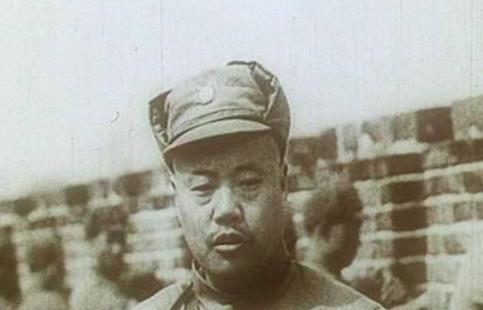War has always been synonymous with cruelty, and china has never lacked a description of the tragic situation of war for five thousand years. China's modern War of Resistance is the closest war to us, and in this war, countless heroes have written the tragedy of war with their blood.
What Xiaobian wants to talk to you about today is the famous anti-Japanese general who fought in the front line of the War of Resistance, he is Song Zheyuan.

Song Zheyuan, a native of Shandong, was born in Shuxiangmendi, but his family was poor, so he studied diligently, practiced martial arts assiduously, and was determined to change the status quo of his family. In 1910, Song Zheyuan, who graduated from the Beiyang Army's Military Academy, followed Feng Yuxiang and was appreciated by Feng Yuxiang. In the Battle of Zhifeng in 1922, due to his outstanding performance, he became a major general in the army and one of the five tiger generals in the northwest.
In that era, China was caught in warlord wars, and warlords emerged in an endless stream, and Song Zheyuan was one of them. During that time, the people's lives were miserable, and at that time, there was a notorious bandit warlord in Fengxiang, Xifu, who was Dang Yukun. This man's life was corrupt and full of vices, and his opium addiction was very large, and in order to obtain more treasures for himself to squander, he dug up the ancient tombs near Xifu. Later, the contradictions between Feng Yuxiang and the various ministries in Shaanxi escalated, and in 1928, Feng Yuxiang sent Song Zheyuan to fight against Dang Yukun.
At that time, Dang Yukun was stationed in Fengxiang City, which was also an easy place to defend and difficult to attack, and Song Zheyuan initially adopted a strategy of strong attack, but suffered heavy casualties. After that, Song Zheyuan used explosives to take the walls of Fengxiang City and concentrated on attacking the defenders who wanted to rescue the walls here, and finally won the victory. Dang Yukun was killed in the war, and more than 5,000 of his soldiers were captured by Song Zheyuan. Song Zheyuan was very disgusted with these captives, and he knew that these captives had developed the habit of fishing and fleshing the people, and if they spared them, they might flee everywhere and continue to harm the people. How could Song Zheyuan tolerate the existence of such hidden dangers, so he ordered the execution of more than 5,000 prisoners on the spot. At the time, he was blamed for this behavior, and he endured people's scorn, but he did not regret it.
In fact, what happened later proved that Song Zheyuan's choice at that time was correct, after he executed more than 5,000 prisoners, the bandits in Shaanxi were daunted, chose to surrender to the latter and fled, and no bandits dared to rebel after that.
During the War of Resistance Against Japan, Song Zheyuan was still an anti-Japanese hero who always rushed to the front line, and in the Great Wall War of Resistance in 1933, the army he led was attacked by the enemy and isolated, but he was not timid, and fought a bloody battle with the Japanese army at Xifengkou and finally won the victory. In 1935, the "Great Knife March" composed against the background of the Song Zheyuan Great Wall War of Resistance resounded throughout the north and south of the river.
Song Zheyuan's life was complex and tortuous, which made people sigh, the Fengxiangcheng massacre, pointed out by thousands of people, the anti-Japanese battlefield, and the battle achievements were outstanding. We should not only see one aspect of his massacre, but his behavior also indirectly protected the tranquility of the Shaanxi region.